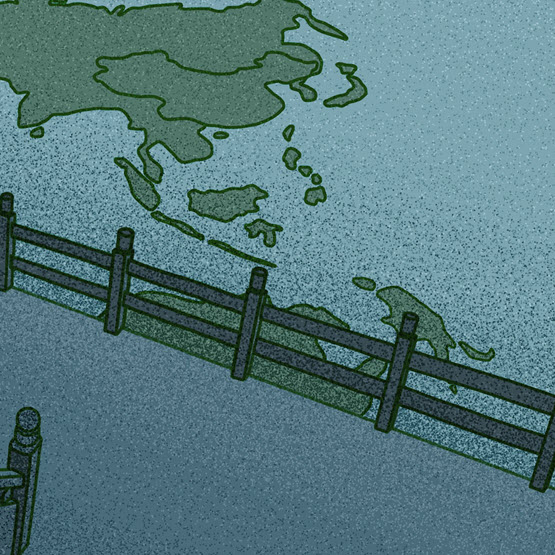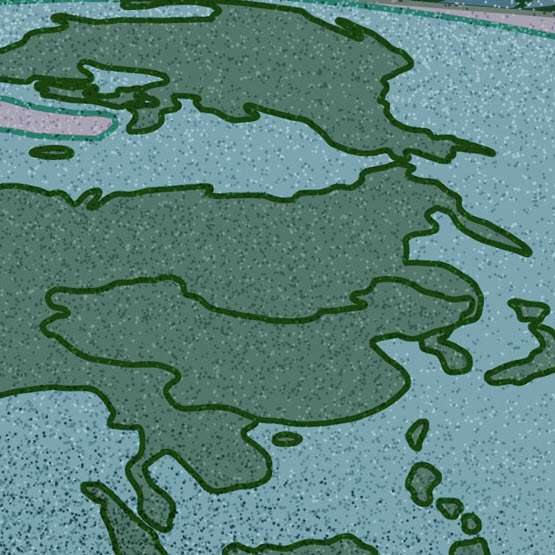China’s Strategic Space in the Digital Undersea

The digital architecture of the People’s Republic of China (PRC) is an expanding strategic space. As both an imagined and physical space, the Digital Silk Road will create opportunities and risks for national security, data, and privacy globally. Concurrent with the Digital Silk Road, the PRC is expanding its presence in the maritime and undersea […]
Energy as a Strategic Space for China: Words and Actions Point to a Competitive Future

“Energy security” is broadly defined in the literature as meaning the reliable and affordable supply of energy, but discussions are often decidedly oil-centric. Indeed, both academic and policymaker attention to energy security as contemporarily defined only began to rise after market turbulence in the late 1960s and then the 1973 oil embargo ended a nearly […]
The Polar Regions as New Strategic Frontiers for China

Over the last two decades, China has significantly expanded its polar agenda and activities. It is a long-term strategic priority for China to establish itself as a legitimate and influential polar stakeholder with a permanent presence and access to conduct various activities in the Arctic and Antarctic. In Chinese strategic considerations and plans, the polar […]
China’s Geopolitical Code: Shaping the Next World Order

Since Xi Jinping became the general-secretary of the Chinese Communist Party (CCP), the practices and logics of Chinese foreign policy have changed enormously. China’s ambitions are mostly global today and no longer limited to dominating only one region (such as the Asia-Pacific or Central Asia) or specific policy fields (such as technology or trade). Under […]
China’s Quest for Strategic Space in the Pacific Islands

In October 2014 the People’s Liberation Army (PLA) held its 17th International Symposium Course, which was attended by 48 international representatives in Beijing, including the author. At this conference, PLA officers employed the Chinese concept “strategic space” in reference to their perceived strategic disadvantage, which they blamed on their containment within the “first island chain.” […]
Central and Eastern Europe in Relation to China’s Strategic Space: The Fizzling Out of a Ten-Year Campaign

During the 1990s and 2000s, the People’s Republic of China (PRC) paid little attention to Eastern European countries that had moved away from socialism.[1] Its foreign policy focused on countries in its immediate neighborhood, Asia, and Western Europe. China was more invested in strengthening relations with Russia and the post-socialist nations within Russia’s sphere of […]
The End of China’s Period of Strategic Opportunity: Limited Opportunities, More Dangers

In the early 2000s, Chinese leaders foresaw a period of strategic opportunity that they believed would enable the country’s rapid development. By the 2010s, however, the benign international environment became more hostile as an increasingly powerful China experienced a rise in tensions with the United States and some of its allies and partners. More importantly, […]
Myanmar and China’s Fluid Frontier

Offering a strategic overview of the relationship between China and Myanmar across history, Ambassador Kelley Currie highlights grey zones, disaggregated sovereignty, fluid frontiers and deeply rooted mutual suspicions as permanent features of China’s southern strategic space’s hinterland in this podcast moderated by Nadège Rolland. Timestamps 2:29: Importance of understanding China’s strategic space 3:20: Burma as […]
How Land and Sea Powers Look at the Map

Jakub Grygiel addresses, first, how states think of their strategic space and, second, why they seek to control it.
The Political Culture of Imperialism in the German Kaiserreich

In the German Kaiserreich (1871–1918) there existed a complex political culture of imperialism, much of which was entangled with other aspects of German public life. The culture comprised many elements, and from them more than one imperialist ideology was constructed. This commentary focuses on four particularly important aspects of German imperialist culture. A few caveats […]